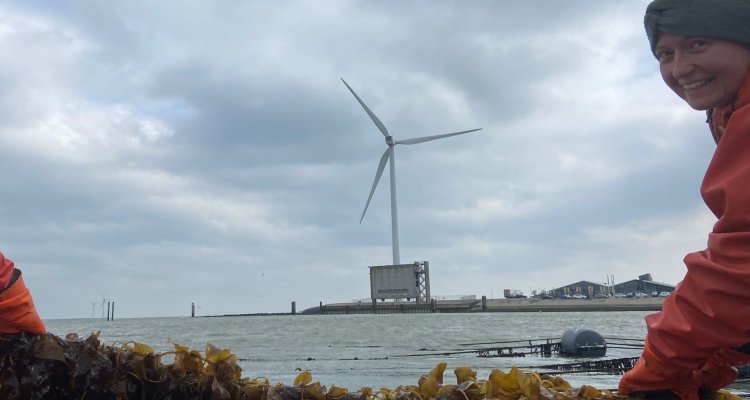
Project
SEASEEDS: Ecological impact of seaweed cultivation and its associated microbiota
Large-scale seaweed cultivations will be implemented in the North Sea. This will inevitably lead to increased detachment of seaweed from the cultivation ropes and thus, increased seaweed biomass in the surrounding environment. We study ecological impacts of detached sugar kelp and its associated microbiota.
While seaweed cultivation for food, feed stock and cosmetics is well established in the Eastern part of the world, the European sector is still developing. A major economic and ecological challenge is the detachment from the cultivation rope causing up to 90 % loss of early-stage seaweeds and post-harvest remains in nature.
The SEASEEDS project aims to study constraints limiting the progression of large-scale seaweed cultivation in the Dutch North Sea by improving the sugar kelp (Saccharina latissima) attachment.
Therein, the Work Package 4 project examines the ecological impact of sugar kelp cultivation and its associated microbiota in the North Sea. In that regard, foci are laid on detached 1) early-stage and 2) late-stage sugar kelp; 3) potentially resulting micro- and macro-ecological community shifts; and 4) applying the scientific insights in combination with ecosystemic modelling for policy making advice.
Potential BSc or MSc thesis projects to get involved are outlined here: Thesis projects Molecular Ecology - WUR
Project initiation: Research into large-scale seaweed production at sea - WUR
Consortium partners of the SEASEEDS project include Laboratory of Cell Biology - WUR, Wageningen Marine Research - WUR, Laboratory of Plant Breeding - WUR, Wageningen Economic Research - WUR, Hortimare B.V. Breeding & Propagating Seaweed, Rope manufacturer Langman, North Sea Farmers, Deltares, GiMaRIS, Brandfriend, Jumbo Supermarkten, ReShore - WUR
Further collaborators are e. g., The Seaweed Company, Dr. Reindert Nijland; Prof. dr. O. De Clerck (ugent.be), Dr. Thomas Wichard (uni-jena.de)
Primary funded by NWO